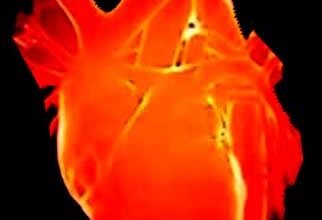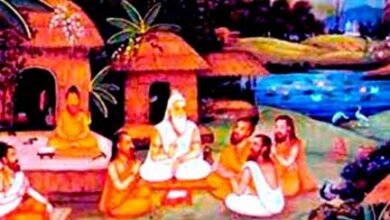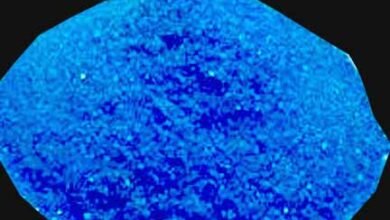
जन्तु विज्ञान से संबंधित-132.
 1. Who discovered the cell? = British scientist Robert Hooke. 2. Who discovered Bacteria? = Antonie van Leeuwenhoek. 3. Who discovered the Blood Group and RH Factor? = Karl Landsteiner. 4. Who discovered blood circulation? = William Harvey. 5. Who discovered the blood groups? = Landsteiner. 6. Who gave the double helix model of DNA? = Crick and Watson. 7. What is called ‘protein factory’? = Ribosome. 8. What is the powerhouse of a cell? = Mitochondria. 9. What is called the RBC red blood cell graveyard? = Spleen. 10. Which vitamin is helpful in blood clotting? = Vitamin K. 11. What is very important for the development of the body? = Protein. 12. Who protects the body from diseases? = White blood Cells / Leucocytes. 13. Which is the longest cell? = Nerve cell (neuron cell). 14. What is a master gland? = Pituitary Gland. 15. What is required to control the work of thyroid glands? = Iodine. 16. Where is Tiniasolium (lace worm) found? = Bowels of pigs and humans. 17. Which fertilizer is used as bone? = Phosphorus Supply. 18. Which enzyme is found in saliva? = Ptyline. 19. Which hormone is released in excess at the time of stimulation? = Oxytocin hormone. 20. The main component of cytoplasm is = Cytosol. 21. A genetic disease that affects blood? = Thalassaemia. 22. By whom is oxygen supplied in the blood? = Hemoglobin. 23. Which is the most abundant element in the human body? = Oxygen. 24. What is the volume of plasma in blood? = 60%. 25. What is the number of chambers in the human heart? = Four (04). 26. Does urine have an abnormal component? = Albumin. 27. What causes arthritis disease? = Uric acid crystals deposited in joints. 28. Does fluorine belong? = Deformation of Teeth. 29. Kidney disease in humans is caused by contamination of = Cadmium. 30. Where is the hormone pralakitan produced in the human body? = Pituitary gland. Dr. Amrendra Kumar. ========= ========= =========  1. कोशिका की खोज किसने की थी? = अंग्रेज वैज्ञानिक राबर्ट हुक. 2. बैक्टीरिया की खोज किसने की थी? = ल्यूवेन्हॉक. 3. रक्त समूह ( Blood Group ) एवं आर एच तत्व( RH Factor ) की खोज किसने की थी? = कार्ल लैंडस्टीनर. 4. रक्त परिसंचरण की खोज किसने की थी? = विलियम हार्वे . 5. रूधिर वर्गों (रक्त समूह) की खोज किसने की थी? = लैंडस्टीनर. 6. DNA का डबल हेलिक्स मॉडल किसने दिया था? = क्रिक और वाटसन. 7. ‘प्रोटीन की फैक्ट्री’ किसे कहा जाता है? = राइबोसोम ( Ribosome ). 8. कोशिका का पावर हाउस किसे कहा जाता है? = माइटोकांड्रिया ( Mitochondria ). 9. RBC लाल रक्त कण की कब्रगाह किसे कहा जाता है? = प्लीहा. 10. रक्त का थक्का बनाने में कौन विटामिन सहायक होता है? = विटामिन के (K). 11. शरीर के विकास के लिए अत्यंत आवश्यक होता है? = प्रोटीन. 12. कौन रोगों से शरीर की रक्षा करता है? = श्वेत रक्तकण. 13. सबसे लम्बी कोशिका होती है? = तंत्रिका कोशिका (न्यूरोन सेल). 14. मास्टर ग्रंथि किसे कहते है? = पीयूष ग्रंथि. 15. थाईरॉइड ग्रंथियों के काम को नियंत्रित करने के लिए आवश्यक होता है? = आयोडीन. 16. टीनिया सोलियम (फीता कृमि) कहाँ पाया जाता है? = सूअर और मानव की आंत. 17. हड्डी का प्रयोग किस उर्वरक के रूप में किया जाता है? = फास्फोरस आपूर्ति के लिए. 18. लार में कौन सा एन्जाइम पाए जाता है? = टायलीन. 19. उत्तेजना के समय कौन सा हार्मोन अधिक मात्रा में उत्सर्जित होता है? = ऑक्सीटोसिन. 20. कोशिकभित्ति का मुख्य घटक होता है? = साइटोसोल. 21. एक आनुवांशिक रोग है जो रुधिर को प्रभावित करता है? = थैलासीमिया (Thalassaemia). 22. खून में किसके द्वारा ऑक्सीजन की आपूर्ति होती है? = हीमोग्लोबिन. 23. मानव शरीर में सबसे ज्यादा मात्रा में पाये जाने वाला तत्व होता है? = ऑक्सीजन. 24. रक्त में प्लाज्मा का आयतन कितना होता है? = 60%. 25. मानव हृदय में कक्षों की कितनी संख्या होती है? = चार (04). 26. मूत्र का असामान्य घटक होता है? = एल्ब्युमिन. 27. गठिया रोग का कारण है? = जोड़ों में यूरिक एसिड क्रिस्टलों का इकट्ठा होना है. 28. फ्लोरीन का सम्बन्ध होता है? = दातों की विकृति. 29. मानव में गुर्दे का रोग किसके प्रदुषण से होता है? = कैडमियम. 30. मानव शरीर में प्रेालैकिटन हार्मोन का निर्माण कहाँ होता है? = पियूष ग्रन्थि. डॉ अमरेंद्र कुमार.
|





